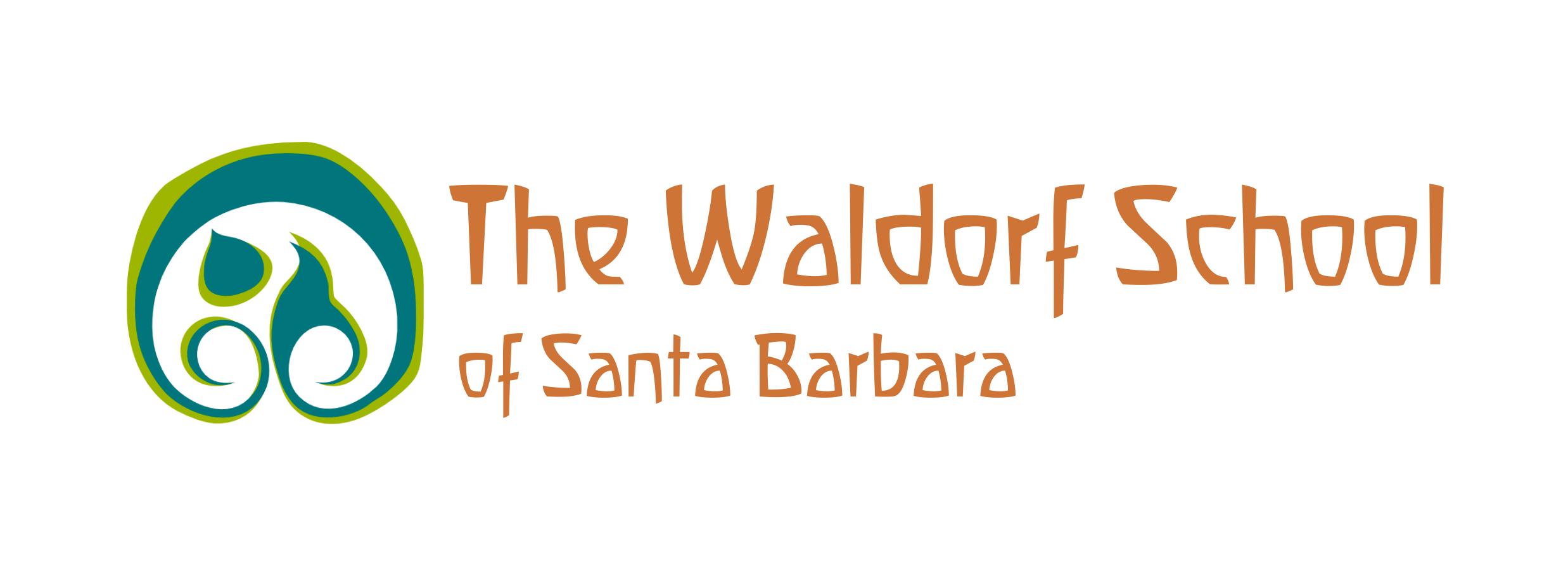The Help of the Spiritual World
Dear Member of The Waldorf School of Santa Barbara Community,
In Waldorf schools you hear much about spirituality. Implicit in the education is wonder over this being we were all mysteriously born into, a wonder for ourselves, for others, for the seasons, the plants, the animals, the minerals, for a reality in which nothing stands alone:
From my head to my feet,
I'm the image of God.
From my heart to my hands,
His own breath do I feel.
When I speak with my mouth
I shall follow God's will.
When I see and know God
In Father and Mother
In all loving people, in beasts and flower,
In trees, plants, and stones,
Then no fear shall I feel,
Only love then fills me
For all that is around me.
Rudolf Steiner
“According to the Lotus Sutra,” writes Thich Nhat Hanh, “we have to live in the historical and ultimate dimensions of reality at the same time. We walk, look, breathe, and eat in a way that we touch the absolute dimension of reality. We transcend birth and death and the fears of being and nonbeing, the fears of one and many.”
Modern life has made it hard for the human being to walk in the historical and the ultimate dimension at the same time; has made it hard for the human being to remember that she is held by benevolent forces beyond her comprehension. And the effect of this—on adults and on children—can be great anxiety.
But such an understanding, we believe, is important; to wit: when the child sees that she is held by something larger than herself, something larger than her parents (Steiner calls that something “God”; Nhat Hanh calls it “the ultimate dimension” or “nirvana”; one uncomfortable with such language might invoke “the universe”), she may find deep rest in her being.
“Wherever you turn,” says the Koran, “is Allah’s face.” Fostering such knowledge—that all around us is a Wonder of which we are inseparable, a Wonder where nothing stands alone, where (borrowing from Richard Rohr) “our sense of disconnection is only an illusion”—is crucial here at WSSB.
In a recent online post, the editors of Waldorf Publications write: “The situation we are all in right now stimulates fear in a way never experienced before in our lifetime. For their sakes, as parents and teachers, we need to use the propagation of fear to practice greater and greater calm and courage on their behalf. We might be able to do it better for them than we might if only for ourselves. To be alive is a wonderful thing, whatever the circumstances.”
Perhaps one way to practice greater calm and greater courage is to ponder what it might mean to let go into that which holds us (even if our understanding of such a practice is dim or skeptical). How do we remind ourselves and our children that we humans are not separate, that we are not -- as one writer put it -- "isolated egos inside bags of skin"? Here is Steiner again, in another apt poem:
A Verse for Our Time
We must eradicate from the soul
all fear and terror of what comes
towards man out of the future.
We must acquire serenity
in all feelings and sensations
about the future. We must look
forward with absolute equanimity
to everything that may come.
And we must think only that
whatever comes is given to us
by a world-directive full of wisdom.
It is part of what we must learn in this age,
namely, to live out of pure trust, without
any security in existence. Trust in
the ever present help of the spiritual world.
Truly, nothing else will do if our courage
is not to fail us. And let us seek the awakening
from within ourselves, every morning and every evening.
***
In gratitude,
The WSSB Admin Team
PS The thought of the day is by C.S. Lewis. In a letter to a girl named Sarah, dated April 3, 1949, Lewis writes:
"Remember that there are only three kinds of things anyone need ever do. (1) Things we ought to do (2) Things we’ve got to do (3) Things we like doing. I say this because some people seem to spend so much of their time doing things for none of the three reasons, things like reading books they don’t like because other people read them. Things you ought to do are things like doing one’s school work or being nice to people. Things one has got to do are things like dressing and undressing, or household shopping. Things one likes doing — but of course I don’t know what you like. Perhaps you’ll write and tell me one day."
